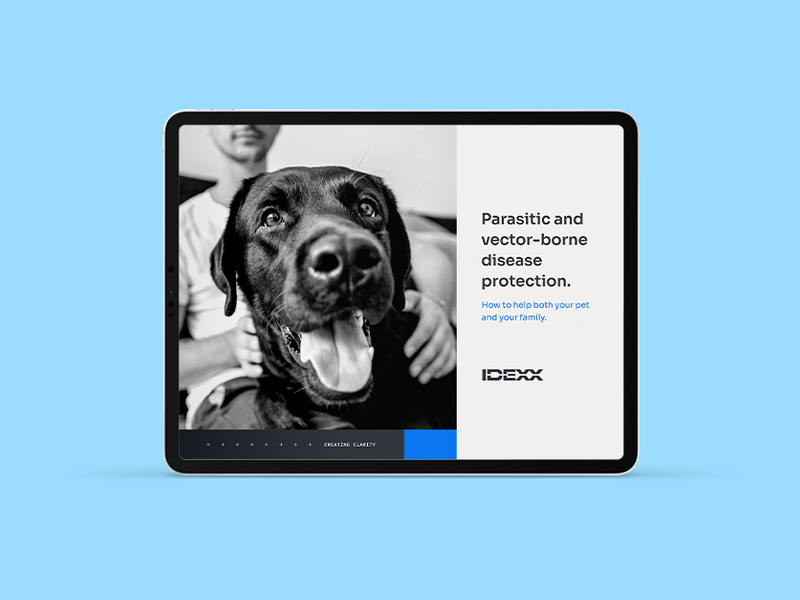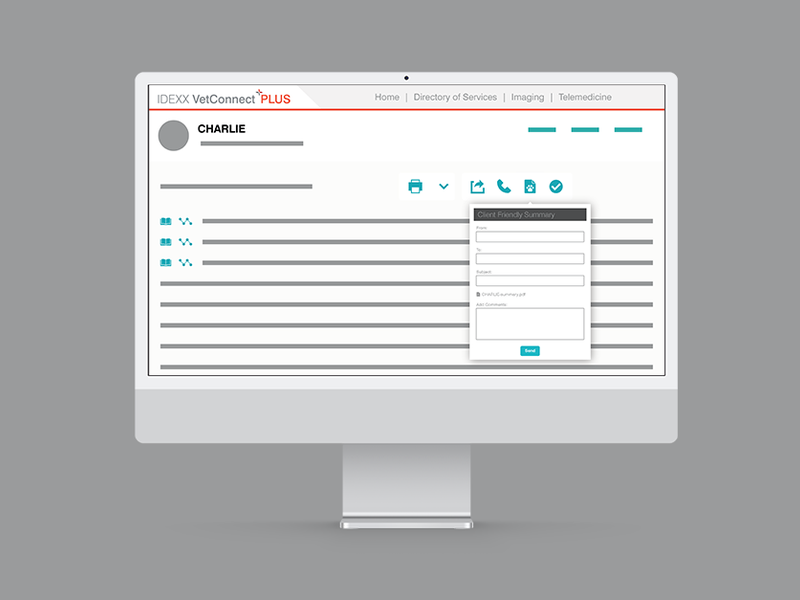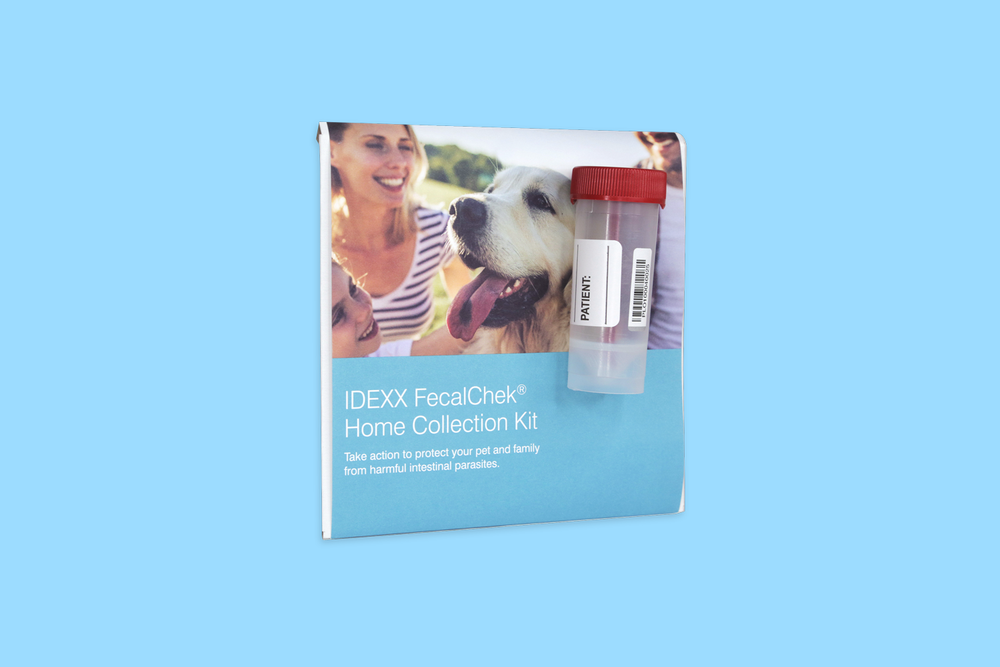Fecal Dx antigen testing
Communicating with clients.

Helping pet parents understand.
People want what’s best for their pets. The more they know about the benefits of regular fecal screening, the more they’ll be proactive and help reduce the spread of infection.

There are a lot of ways vets can help pet owners win the battle against parasites. IDEXX has free, easy-to-understand brochures that help clients realize the importance of regular screenings.

In addition to the data, insights, and guidance VetConnect PLUS gives veterinarians, it also provides an easy way to send personalized, client-friendly result summaries directly from the app.

Helpful tips to pass along to your pet parents.
- Pick up and dispose of your pet’s stool regularly.
- Wash your hands after exposure to your pet’s urine, stool, soil (gardening), and sandboxes.
- Cover sandboxes and play areas to prevent wildlife and strays from contaminating these areas.
- Remind children not to put dirt or dirty hands in their mouths.
- Check your pet and your family for ticks regularly. If you find a tick, remove it right away.
- Use parasite preventive medications as directed by your veterinarian.
- Have your pet tested at least once a year or as recommended by your veterinarian.

IDEXX FecalChek Home Collection Kit
Collecting feces isn’t exactly a pet owner’s idea of fun. But the IDEXX FecalChek Home Collection Kit makes it fast, simple, and sanitary. All that’s needed is to collect the specimen and drop the kit in the mail. It’s already addressed to IDEXX Reference Laboratories.
The kit contains everything needed to send the pet’s fecal specimen to the lab for parasite screening. Owners simply scoop up the specimen at home, seal it in the vial provided, and send it to the reference lab in the preaddressed envelope. Your practice will be sent the results.